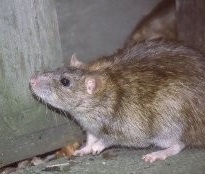The future of all anticoagulant rodenticides is under threat again from legislation in the pipeline from Brussels to replace the well-known Biocidal Products Directive.
Explaining this new development, Dr Alan Buckle vice-chairman of the Cefic Rodenticides Working group says: “Rodenticide manufacturers spent many years, and millions of pounds, getting these products through the Biocidal Products Directive (BPD) review. All anticoagulants successfully completed the review and have dates set for admission onto Annex 1 of the BPD, meaning they can continue to be sold. But, just when we thought the future was clear, the European Commission came up with another threat to get rid of these crucial products.”
|
How has it come to this? For many years, manufacturers have fought to stop the Commission labelling all anticoagulants as teratogenic – in other words ‘toxic to reproduction’. All have studies conducted to test for teratogenicity showing they are NOT teratogens. But the Commission, prompted by Nordic member states, is bent on ignoring these studies. This is because there is an exception to the rule, warfarin is a teratogen, and the Nordics believe that all the other anticoagulants must be as well, in spite of manufacturers’ studies to the contrary. Meanwhile, another Commission initiative will make it illegal in Europe to sell a chemical that is a ‘CMR’, that is Carcinogenic, Mutagenic (gene altering) or toxic to Reproduction. This sounds reasonable but can you see where it leads – the inevitable end for the anticoagulants? Sensibly, the Commission provides a get-out clause for products where there are ”no suitable alternative substances or technologies”. But incredibly all rodenticides and insecticides used in pest control will NOT be permitted to use this get-out clause! |
|
|
|
Alan Buckle says: “So, if this plays out as expected, we are in for yet another fight to keep anticoagulants. Manufacturers will need support in the battle with the Commission to ensure that we can effectively control rats and mice and protect peoples’ health across Europe.” |
||


